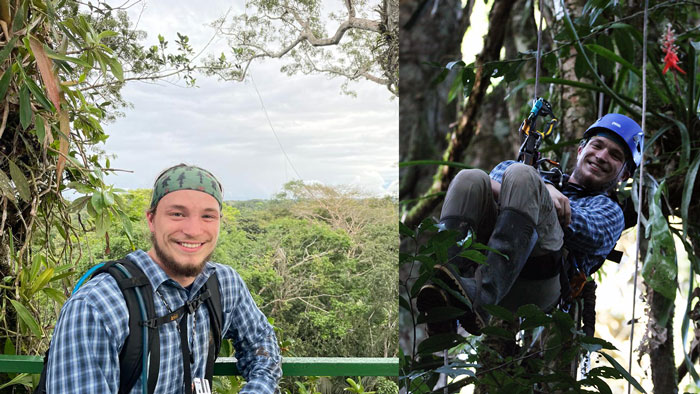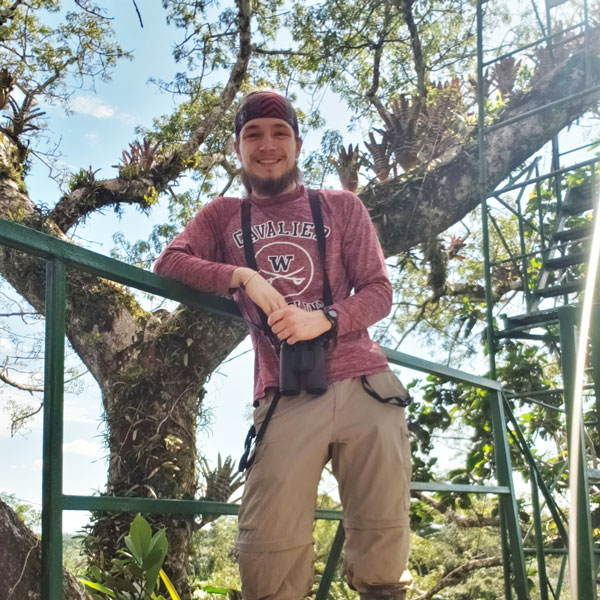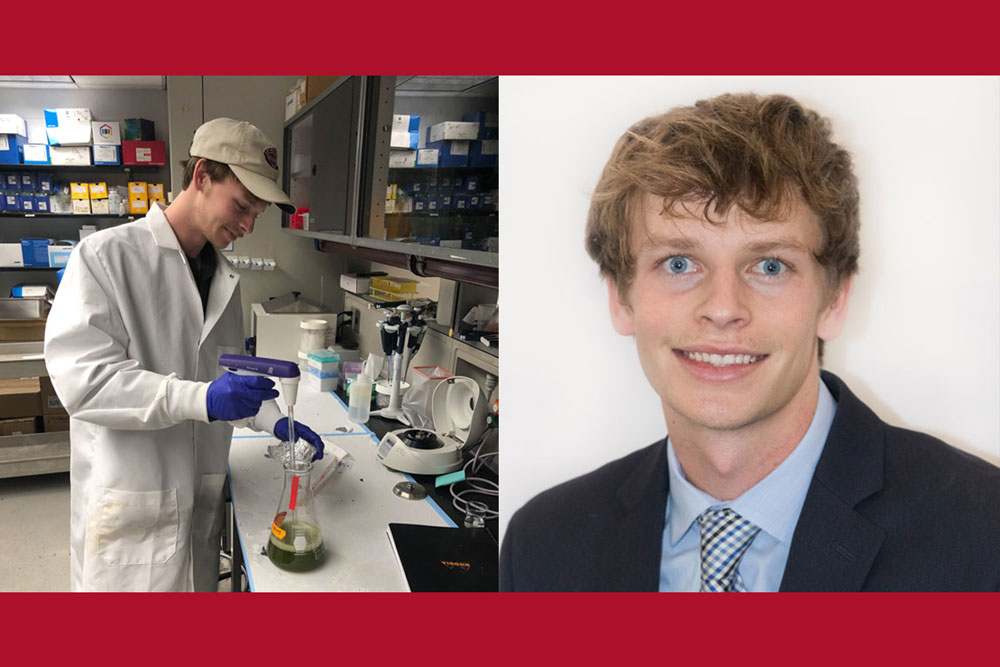Senior Anthropology major explores communication patterns of primates in the Ecuadorian jungle
Nico Jaworski ‘23 spent the summer analyzing the calls of woolly monkeys in Ecuador to better understand travel patterns and group decision making among the primate family.

Senior Anthropology major explores communication patterns of primates in the Ecuadorian jungle
Nico Jaworski, a senior majoring in Anthropology and minoring in Archeology with a certificate in Geographic Information Science, became interested in his Undergraduate Summer Scholar research project by watching a documentary in class that featured a primate species called Geladas.
This unique species is the only “grazing” species and doesn't utilize some social behaviors such as grooming as much as other primates, resulting in them having distinct vocalizations to one another.
“From this, I became interested in thinking about primate languages and getting that evolutionary perspective to understand our own communications,” Jaworski said.
Kelsey Ellis (@kelsoellis), assistant teaching professor in the Department of Anthropology, helped bring Jaworski’s research vision to life. As a biological anthropologist who has conducted research in Central and South America, she had previously worked with woolly monkeys and demonstrated to Jaworski how they share many similarities with their Geladas counterparts.
Over the span of two months in the jungles of Ecuador at the Tiputini Biodiversity Station (@tiputiniusfq), Jaworski explained that he was able to gain insight into these monkeys’ advanced communication patterns through field observation, sound recordings and data analysis.
“Woollies are extremely unique because they have a ‘fission-fusion’ social dynamic, meaning that in the mornings and evenings they stay together but split out into smaller groups of three to five across hundreds of meters during the day,” he said. 
Each day in the field, Jaworski, Ellis and other researchers were able to travel along with the woolly monkeys using a radio caller and telemetry receiver to tune into different channels to find the group’s location. Once found, Jaworski and the others would collect behavioral data, geospatial data, and recordings of vocalizations.
Fellow Anthropology majors Elisabeth Frank ‘25 and Finn Cooper ‘23 joined Jaworski in the field each day to gather data.
“My data was looking specifically at vocalization and change point times,” Jaworski said. “Any vocalization I heard 15 minutes before or after group travel would indicate some kind of communication taking part in deciding where and when to travel.”
Jaworski observed the monkeys for four days at a time, then taking two days off to analyze his findings on the main project computer.
“Overall, this research adds another lens to our understanding of how we as humans use complex communication instead of grunting at each other or use varying degrees of aggression,” he said.
When not doing active research, Jaworski explained that some other highlights of his summer in Ecuador included learning how to tree climb and being able to eat new varieties of fruit that the woolly monkeys would leave behind.
By the end of the summer, Jaworski had not only learned how to recognize these advanced communication patterns, but also how to further tailor his research for public educational purposes. Through his passion for the subject, he revisited his high school alma mater last semester to give a primatology and anthropology presentation for his former biology teacher’s class. He plans to go to graduate school to get his doctorate in primatology and then do research at a university or with an NGO.
“I want to get others excited about science! If the public doesn’t care, then the research isn’t important,” Jaworski said. “I like the idea of teaching, and becoming a professor would be a great opportunity for me to bridge the gap between research and the public.”
Nico would like to give a special thanks to the Tiputini Biodiversity Station staff for their care and support while in Ecuador. Additionally, he would like to thank his professor and mentor Dr. Kelsey M. Ellis for all her support and making his research possible.
You can find Nico Jaworski on Instagram at @nicojaworski and on LinkedIn.